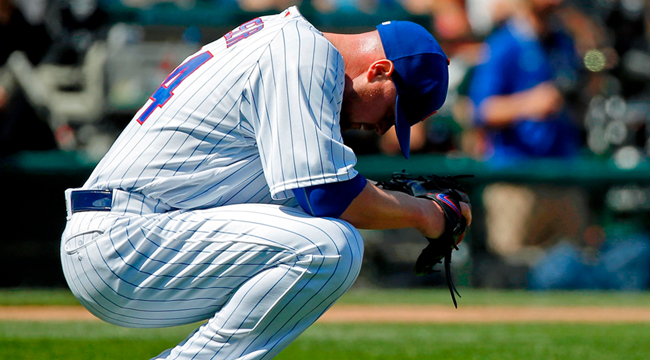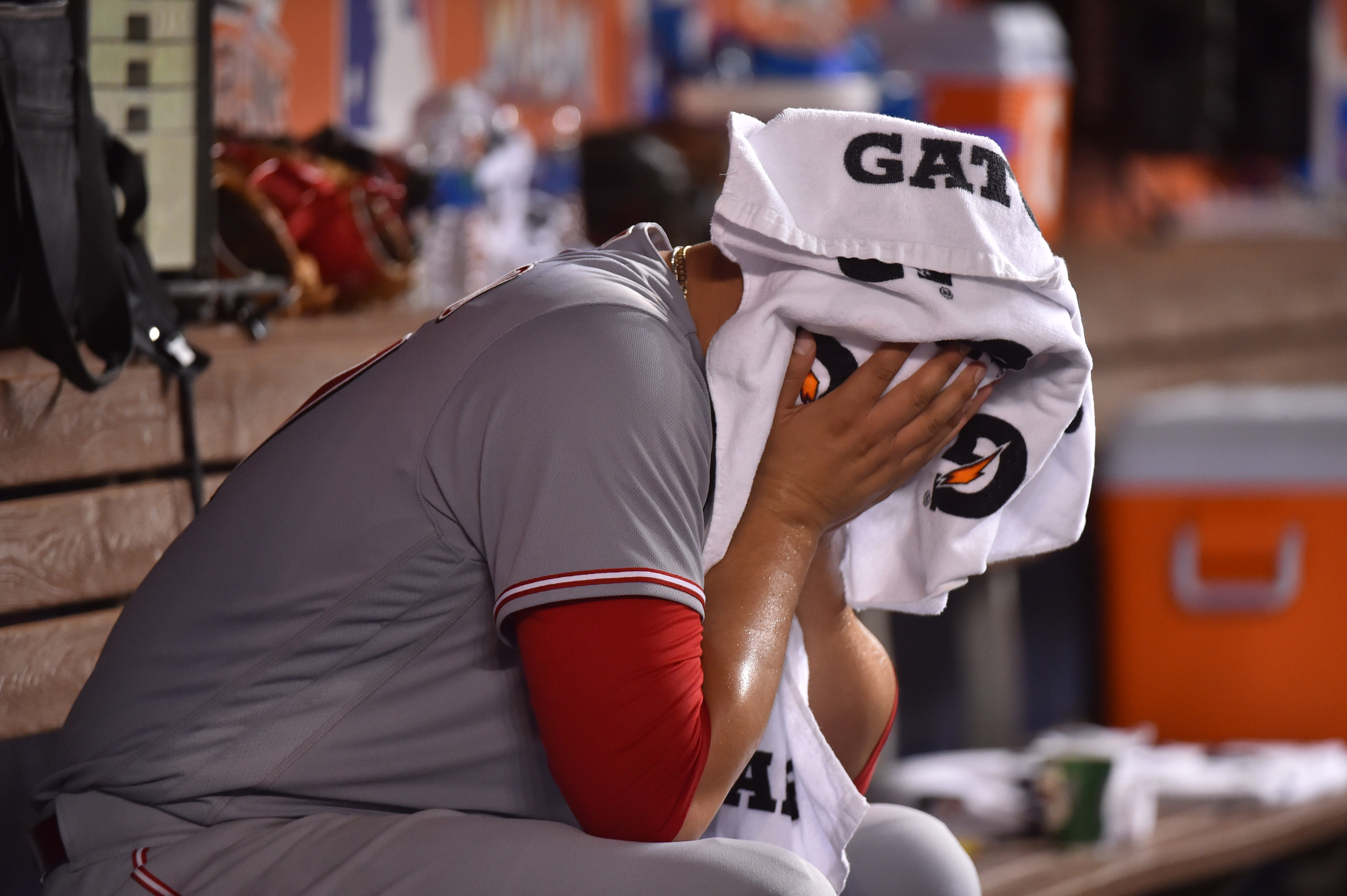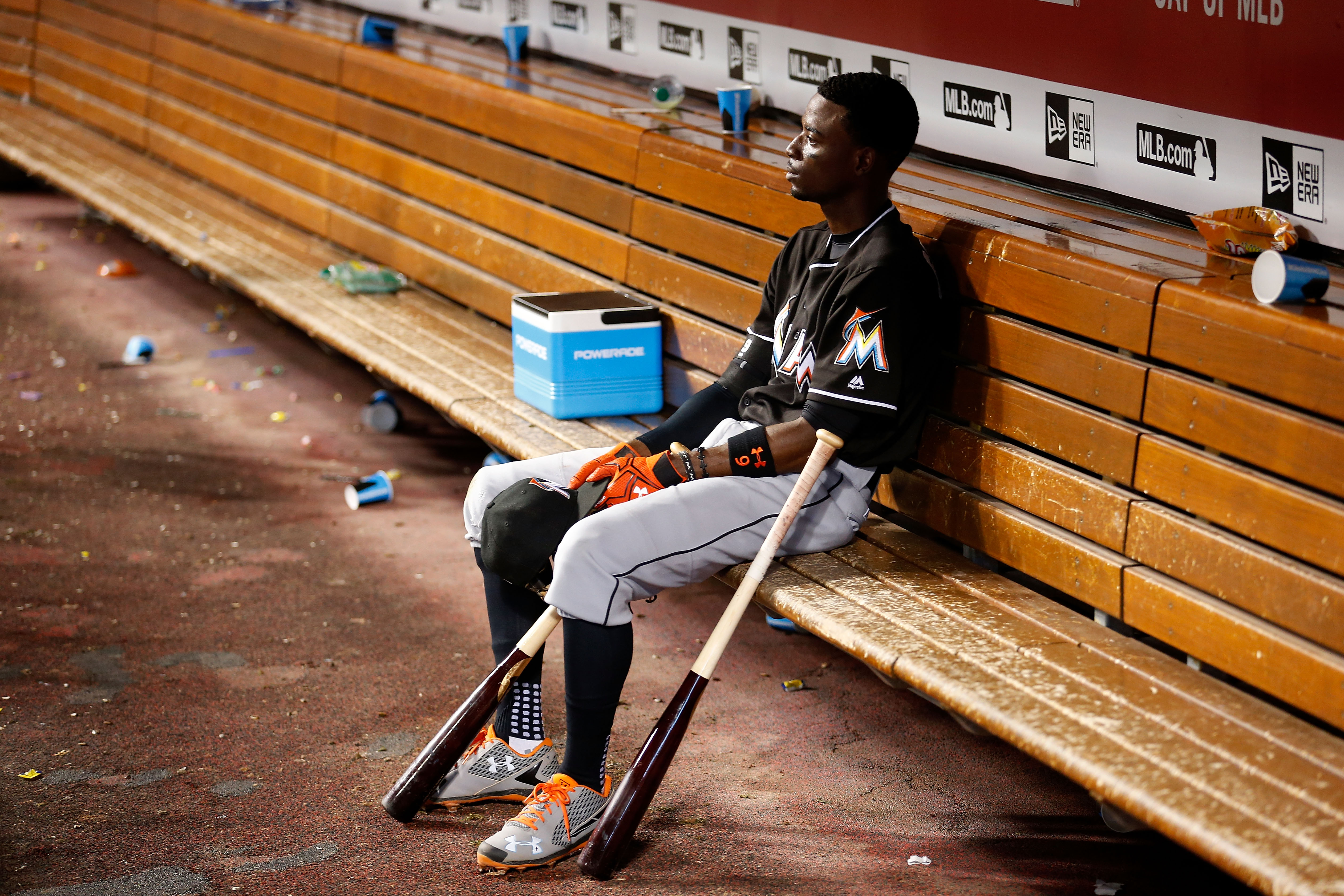
When in the year do you begin to despair?
As it relates to baseball, there’s actually a structure, a lineage, to that question. The answer is never fixed, of course; it’s a moving target, shifting forward or back a couple months depending on the season and the conditions and the way the wind smells in the air that spring. Which way the wind blows is always important, but what does it smell like? Sometimes it smells like the third week of fall. Sometimes it smells like desperation and the trade deadline. But it can be hard to tell; there’s not much wind at the end of July.
When in the year do you know your team won’t make it to the World Series?
Maybe that sounds like too dramatic a question; maybe it sounds too ideological. Every February, though, and every March, one thousand and whatever baseball writers across this gasping land pump out piece after piece to sell you on the obverse of this. Why can’t your team win the World Series, they ask? It’s still spring training, after all. They haven’t lost a game yet. And that’s technically correct, which is the most deceptive kind of correct: they’re selling you on nothing more than the idea that you cannot lose if you have not played. You’re buying it, because what else are you supposed to do with your time in February? It’s right there in the middle of the year’s greatest sports desert. Speaking for the sportswriters, we know when we’ve got you cornered. We’ll sell you hopes for April and dreams for October, because we know you’re desperate enough to buy. Hope springs eternal, we’ve been told, but we’re painfully aware that ad dollars don’t — and hope doesn’t pay bills.
In 2017, we live in something of a post-hope society. Not completely, of course; you’d have to kill us all to extinguish that last, most human instinct, and while there are people in this world working steadily toward that goal we should at least get one or two more Fall Classics in under the deadline. The most interesting thing about the World Series, then, isn’t who wins it — because frankly now that the whole Cubs thing has been dealt with, we’re clean out of ready-made Disney movie endings — it’s who loses it first, last, and most painfully. Anyone can win the World Series, or so we’re meant to believe, but just about everyone is going to lose it.
At least half of the teams in any given Major League Baseball season are going to be bad teams. That’s undeniable, regardless of how defensive you want to get about it. Every team that didn’t make the playoffs? Bad teams. I’ve spent over two decades of my life as a fan of the Baltimore Orioles, a club that was in contention this year up until the third-to-last week of the season, and I can tell you without reservation that was a bad team. The Los Angeles Angels? Bad team. The Milwaukee Brewers? Bad team. Everyone beneath them? You know what they are.

You’ve got one goal in each baseball year. If you fail to meet the first qualifying deadline — if you fail to make the playoffs — then you’re a bad team. Quibble about the relative roster strengths; argue about who is most likely to be a team that makes the playoffs (i.e. a good team) next year. Take the long view. It’s only human to search the horizon to avoid looking at what’s right in front of your face. No irony here: this is one of the most interesting discussions in baseball, year in and year out. Let the teams that are winning have their fun; we concern ourselves most obsessively with the teams that might win.
And each bad team has the context of its franchise in which to operate. First and foremost there are the teams that know they will be bad. In some cases, they are existentially bad or, as conditions of their operation, constitutionally bad. The Miami Marlins were one such team for some 10 years up until their sale to a Derek Jeter-led coalition late this summer; it appears his ownership group will purge the roster of salary obligations and strike boldly into the depths of the National League basement. Farewell to the old boss. Hail the new boss, with his brighter clothes and familiar voice.
Then there are the temporarily embarrassed teams, excused from the halls of power briefly but quite willing to assure you that they’re on the cusp of being let back in: the Texas Rangers, perhaps, or the St. Louis Cardinals. Take your pick. They will protest and protest and protest if you call them bad teams, but that is what they were, and that is what they must be until proven otherwise. Don’t concern yourselves too much with their plight. They’re right. They’ll be looking down on you again soon enough. Their smirks might not be as infuriating as those of the Chicago Cubs, the once and forever kings of old power made new, but smirks they will be.
Somewhere between these two tiers is a strange, pitiful group of fools. The Orioles are here at the moment, but so are the Pittsburgh Pirates, Oakland Athletics, Toronto Blue Jays, and Minnesota Twins, who were a good team this season because they made the playoffs and lost to the New York Yankees, our risen baseball gods. It’s not that these teams don’t have plans to become good again; on the contrary, they have very extensive plans. What they do not have, however, is either the resources or the institutional ability to make them bear consistent fruit. In the modern system, these teams will never form a dynasty, or even win the division three years in a row. They may never even make the postseason. What these teams are consigned to doing is following a process and hoping for a miracle. They are constantly, unceasingly in search not of undervalued market assets or sleeper free agent signings but good fortune. They get it at about the same rate of the rest of us.

This makes these teams perhaps the most compelling losers in the sport: It’s not that you don’t know if they win, but that you don’t know how long it will take them to lose. You know the end is coming; the question is when it will arrive, and every passing day builds anticipation. Sometimes the sword falls in spring, but many times it’s closer to autumn. This is the essence of baseball: the winnowing nature of failure. The mathematical clock running out.
Make no mistake; the fans of these teams aren’t better people for rooting for them. Fandom has no moral value. Scorned fandom is not real suffering, and even if it were, suffering is not the same thing as virtue. Confusing the two can lead down dangerous or, more frequently, stupid roads. But it does make them the most interesting losers, and that is the highest artistic quality to be found in baseball. No one cared, really truly cared about the 104-win Los Angeles Dodgers until they lost 16 of 17 games as the playoffs loomed. Then everyone had a joke, because jokes are all we have now.
So when in the year do you begin to despair?
Jonathan Bernhardt lives and works in Maryland, and has written for Baseball Prospectus, Sports on Earth, VICE Sports, The Guardian, and FanRag Sports.






